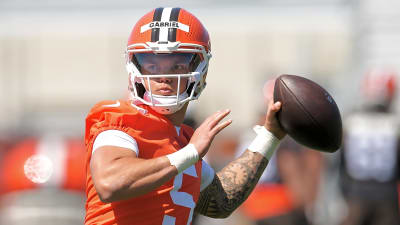Atletico Madrid were unhappy at the time, and their fury will have found no recourse to be calmed following the latest IFAB clarification on ‘double-touch’ penalties. The ‘missed’ Julian Alvarez penalty in a Champions League Round of 16 shoot-out against rivals Real Madrid became one of the most controversial incidents in the history of the Madrid derby.
Initially it was argued that there was no clear evidence for VAR to intervene and rule out Alvarez’s penalty on account of a double-touch. Now IFAB, the International Football Association Board who are in charge of rules and regulations in the game, have decided to ‘clarify’ the law regarding double-touch penalties.
Their statement explains that it is ‘understandable’ that referees have awarded indirect free-kicks or ruled out penalties due to the rules in place, but now IFAB say that accidental double-touch penalties are not covered in the rules, and was intended only to penalise deliberate double-touch penalties. Thus they say that from the first of July onwards, if an accidental double-touch penalty is scored, it will be retaken, and if it is missed, then it will be recorded as so in a shoot-out or an indirect free-kick will be awarded if it is during the game.
Full Statement:
The IFAB wishes to clarify Law 10 – Determining the Outcome of a Match and Law 14 – The
Penalty Kick regarding the situation when the penalty taker accidentally kicks the ball with both
feet simultaneously or when the ball touches the penalty taker’s non-kicking foot or leg
immediately after they have taken the kick.
This situation is rare, and as it is not directly covered in Law 14, referees have understandably
tended to penalise the kicker for having touched the ball again before it has touched another
player, thus awarding an indirect free kick to the opposition or, in the case of penalties (penalty
shoot-out), recording the kick as missed.
However, this part of Law 14 is primarily intended for situations where the penalty taker deliberately touches the ball a second time before it has touched another player (e.g. when it
rebounds from the goalpost(s) or crossbar without touching the goalkeeper). This is very different from the penalty taker accidentally kicking the ball with both feet simultaneously or touching the ball with their non-kicking foot or leg immediately after they have taken the kick, which usually occurs because they have slipped when taking it.
Not penalising an accidental double touch would nevertheless be unfair, as the goalkeeper can be disadvantaged by the altered trajectory of the ball.
Therefore, The IFAB would like to clarify the procedures in the following situations.
• The penalty taker accidentally kicks the ball with both feet simultaneously or the ball touches
their non-kicking foot or leg immediately after the kick:
§ If the kick is successful, it is retaken
§ If the kick is unsuccessful, an indirect free kick is awarded (unless the referee plays
advantage when it clearly benefits the defending team) or, in the case of penalties (penalty
shoot-out), the kick is recorded as missed
• The penalty taker deliberately kicks the ball with both feet simultaneously or deliberately
touches it a second time before it has touched another player:
§ An indirect free kick is awarded (unless the referee plays advantage when it clearly benefits
the defending team) or, in the case of penalties (penalty shoot-out), the kick is recorded as
missed.
Please note that these clarified procedures are effective for competitions starting on or after 1 July 2025 and may be used by competitions starting before that date.
More must-reads:
- Braves' rough stretch gets worse with stunning collapse vs. Diamondbacks
- Browns confirm Dillon Gabriel news amid QB competition
- The 'NBA assist champions since 1976-77' quiz
Breaking News
Trending News
Customize Your Newsletter
 +
+
Get the latest news and rumors, customized to your favorite sports and teams. Emailed daily. Always free!







